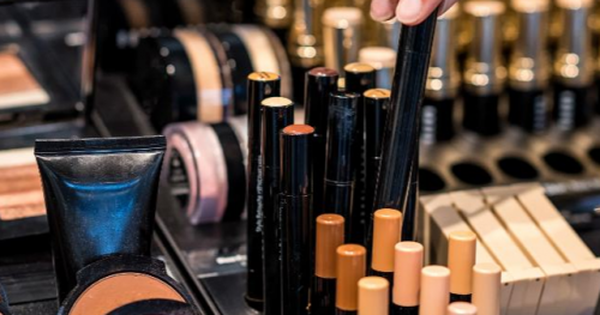GettyGetty
“Try before you buy” has always been essential to the buyer’s journey, particularly when it comes to the beauty industry. As leading cosmetic brands spend billions of dollars annually in advertising, they continue engaging in one-directional conversation to push their message and samples to the consumer. In this traditional era that I call “Beauty 1.0,” trying out makeup products with old-fashioned testers is time-consuming, unsanitary and inconvenient. Consumers are limited by what is available, and finding the right color and style can be a painful process.
I work at the intersection of beauty and technology, so I know there’s a better way. In 2015, digitally-savvy beauty brands started to adopt augmented reality (AR) “magic mirrors” in mobile apps and retail store environments so that consumers could try out beauty products virtually. This era, when the industry started to embrace digital technologies, was the first step in improving the customer experience. True-to-life virtual product trials allow anyone with a mobile device to try branded products for themselves.
As technology advances even further, the possibilities to transform the beauty industry using technology are only going to multiply as brands offer consumers even more personalized and interactive experiences. Here are three ways I believe industry leaders can start to rethink their consumer beauty experiences now in order to reap the benefits of AI in the years to come.
1. Create Highly-Personalized Experiences
The time for one-size-fits-all beauty is over. With the application of artificial intelligence (AI), the next generation of beauty experience will be designed just for your customer. Personalization doesn’t simply mean engraving your name on a lipstick case. In fact, machine learning will enable you to provide instant product recommendations based on your customer’s physical characteristics, like skin tone or face shape, and individual preferences for products containing (or lacking) certain ingredients. AI algorithms are also being applied to shade matching, so consumers can find the perfect foundation to match their skin tone with just a mobile phone camera.
Brands can increase personalization now by focusing on the message they’re sending to consumers. Instead of sending segmented blast messages, try tailoring content to the individual by mentioning purchase history. This will remind users to repurchase when they are running low on their favorite products. You can also include location references to guide in-store shopping.
2. Begin To Offer Proactive, Instead Of Reactive, Experiences
Your device will soon know you better than you know yourself, providing you suggestions proactively thanks to the integration of AI. Beauty brands can expect to see the entire purchasing journey transformed as technology senses the needs of consumers and responds in innovative ways to offer solutions at the critical moment. Some companies are already offering AI skin diagnostic tools that analyze skin and compare its condition to a database of others and track progress over time. Your consumers will begin to expect product suggestions at, or before, the time that they’re needed.
3. Create High-Touch Interactive Experiences
It’s also time to rethink your in-store sales process. The in-store interaction with a beauty advisor, for example, is the crucial moment where consumers ask for advice, engage deeply with your brand and ultimately make (or don’t make) a purchase. As on-demand services like live AR-powered video consultations proliferate, brands should ask themselves what more they can do to deepen the high-touch, memorable, interactive experience in stores. Consider streamlining discovery and selection with product recommendation kiosks, or hold makeup artist meetups as experiential rewards for loyal customers to learn new techniques.
The Future Of Beauty Is Here
Beauty brands should be aware that customers will continue to demand more from them, making each interaction an opportunity to provide a valuable, meaningful and unique experience. I believe the impact of personalization will be felt across all industries, not only limited to beauty. The above isn’t a complete solution; rather, I believe it is the direction brands must move or risk being left behind.

